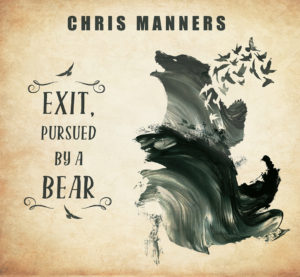Time, they say, heals all things. The sprained ankle, the broken heart, the ache of loss; they all mend with the passing years.
Oh yeah? They’re wrong. One pang strikes as keen today as it ever did: that my ex-wife (who I remember fondly in all other respects) took this album with her when she left. And it’s no longer available and probably never will be again. Not even on YouTube, that’s the depth of the bottomless chasm into which it’s fallen.
I howl with grief at the gap left in my life.
Happily, I’m curating a stack of old vinyl LPs for a friend who lacks a turntable and, rummaging through them, I found a copy.
(If he thinks he’s getting it back, he’s much mistaken.)

Songs and Buttered Haycocks, recorded in 1975, was Dave’s third album. The first two, Dave Burland and Dalesman’s Litany, were more or less what you’d expect of an ex-copper from Yorkshire: boisterous choruses, rough edges, arran sweaters. By his next solo album Can’t Fool the Fat Man he’d discovered Lowell George and Randy Newman and was on his way to being — as Mike Harding calls him — the Matt Monro of Barnsley.
This one’s absolutely peak Burland: the voice is mellower and more thoughtful than on the earlier recordings, perhaps because of a change of record label and recording studio. The material’s still traditional or British contemporary. I don’t think Dave would ever claim to be a virtuoso, though he’s no slouch, but the sound of his guitar is lovely: rich and deep, nimble and bright at the same time. He played Epiphones in those days, big-bodied and narrow-necked, while contemporaries often preferred Martins.
I’d remembered the first side better than the second: it opens with Banks of the Bann, well-known Irish song about lost love and misspent youth, with a gorgeous tune and a challenging vocal range that Dave handles with ease. It closes with Brave Wolfe, commemorating the loss of a British General in 18th century Canadian wars multi-tracked in a cappella harmony until a daring electric guitar coda. And along the way there’s Dave’s version of Bitter Withy, driven by his characteristic furled-finger slap on the strings.
There’s more going on in Side Two than I recalled: Richard Thompson’s plaintive Old Changing Way; David Ackles’ His name is Andrew, a bleak portrait of lost faith and joy; The Great Silkie, big ballad of changing shape and identity. It’s darker, emotionally more complex, thought-provoking.
But, still, one thing’s missing. Dave Burland the raconteur. He wasn’t — still isn’t — a comedian from the folk circuit, such as Harding or Jasper Carrott. He’s a singer with a line of patter that’s apparently spontaneous, but with an ability to be blissfully, effortlessly funny. You can find examples of that on YouTube, even if this magical record seems lost in the ages.


You should have said. I still have my lovingly cared-for copy – and I’ve already converted it to mp3 . . .